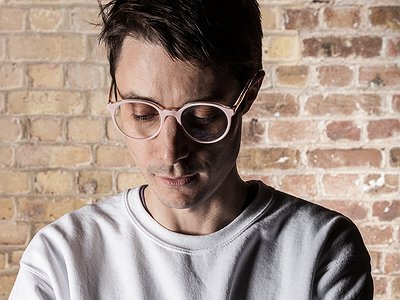Part 1
Name: Joseph Richmond-Seaton / Call Super
Occupation: DJ/Producer
Current Release: fabric 92 on fabric records
Recommendations: Alex Ross's The Rest is Noise and Ned Sublette's History of Cuban Music are my two favourite books on music. Oh and maybe Freaky Dancin' by Bez as well.
Website: If you enjoyed this interview with Call Super, check out his Facebook profile for more information.
When did you start DJing - and what or who were your early passions and influences?
I bought my first turntables when I was 15. Before that I had to go to friends' houses to learn. It was around that time I was shifting from being into much tougher, UK hard techno and trance to US house sounds from the windy / motor / big apple cities. At the time there was also a big west coast thing going on with the tribal techy stuff like Hipp-E and Halo and Doc Martin that connected with UK artists like Peace Division and Circulation; but I didn't connect emotionally with that stuff as I did with the east coast and mid-west sounds. I was also massively into certain jazz music through my Dad and my own learning, and me and my friends at school were obsessed with bands like The Slits, The Au Pairs, ESG, The Happy Mondays; I think I read Bez's book Freaky Dancin' about three times when I was that age. It was so so funny.
For most artists, originality is first preceded by a phase of learning and, often, emulating others. What was this like for you? How would you describe your own development as an artist and the transition towards your own style?
I guess I listen to and steal from anything I find curious. I don't get inspired by dance music to make dance music, but I might be inspired by hearing something in the street or on the bus. Inspiration should come from completely different things to the medium you're operating in, otherwise you're stuck in a very boring place.
From some of my favourite CDs from the fabric series as well as the club, I learnt a lot about different tactics that can be used to pace a set well. It's a hard thing to learn and a lot of DJs I see aren't very good at it to be honest. Often you operate in an environment where crowds are impatient, or they're on cocaine and feel frustrated and edgy. fabric is one of the few places you're protected and the crowd aren't going anywhere so good DJs are free to show what they're fully capable of. Some of the CDs are good at displaying this, too.
What were some of the main challenges and goals when starting out as a DJ and how have they changed over time? What is it about DJing, compared to producing your own music, that makes it interesting for you?
I keep my work as a composer and as a DJ separate because I love them for very different reasons. The link is that one pays for me to be able to do the other. I love playing music in clubs because it is a joy to construct sets, to build in themes to your work, things you come back to in different ways in different situations, always folding in new ideas and new music and so on. Composing music has a fundamentally different set of challenges and skills. I love that I essentially do two different jobs, one social and one anti-social.
How would you define the job and describe the influence of the DJ? How are the club experience and the music transformed through your work? Would you say you see DJing as improvisation? As composition in the moment? Or as something entirely different from these terms?
I frame the job as one that is sensitive to the circumstances of the night. The crowd, the system, the hour all dictate what should be played, how it should be played and so on. That sensitivity should create the best possible environment that the club is capable of providing. Many DJs are booked to play what they play, and so for them it is the opposite of this, but that is one of the reasons I keep my roles of composer and DJ separate. The DJ has to work with the club to achieve the best result - it should NEVER be about just turning up and jumping in unless you have already built up an extensive understanding of the club's quirks. Yes, for me it is 100% improvisational.
What was your first set-up as DJ like? How has your set-up evolved over the years and what are currently some of the most important pieces of gear for you? What motivates your choices and possible changes?
It was two Gemini turntables and a Roland mixer. I upgraded to 1210s a few years later and also bought my preferred mixer, a Vestax PMC-250. The mixer is my favourite because it is very simple and can do everything - it has an excellent crossfader, rotary EQs on both channels that are kill EQs as well as tiny kill faders above them and input switches for fast cuts. Don't know why companies don't make mixers like this anymore.
How do you prefer to make use of technology? How do you see the feedback mechanism between technology and creativity, both in terms of DJing and production for you? What are positive, what are negative developments from your point of view?
For me the focus of technology should really only be on creating the best listening and dancing environment. Some places understand this and so if their architectural frame of the building is made of concrete then they invest significant resources in treating the room so that the sound system doesn't sound terrible. Others don't do this, they just install and then scratch their heads when the sound is horribly resonant and harsh. Other than that a well adjusted and comfortable booth allows you to not worry about space and technicals and just get on with doing a great job. I work with the mixer, not an effects unit or whatever so I don't care about technology from that perspective.






